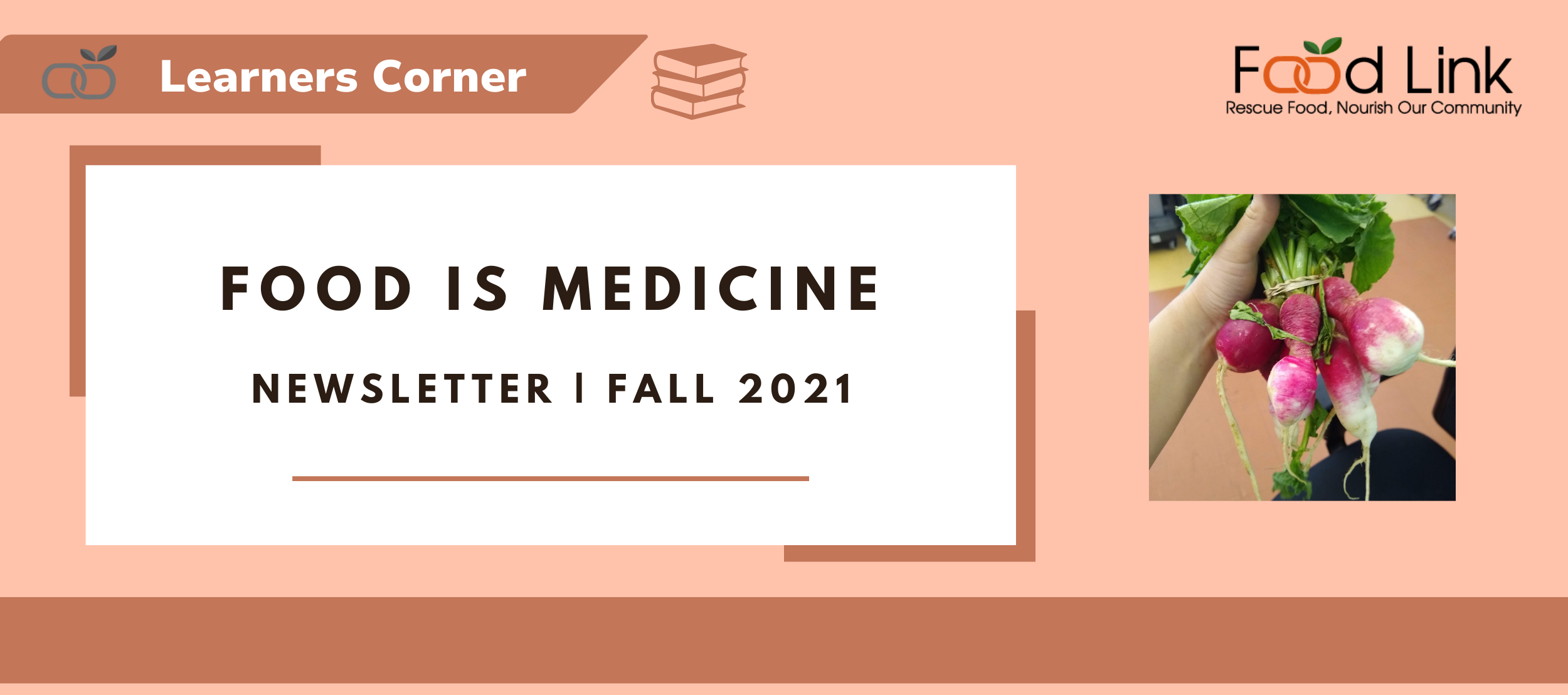Food Is Medicine
In May 2021, the Greater Boston Food Bank reported that food insecurity in Massachusetts increased 55% due to the COVID-19 pandemic. With a staggering 1 in 7 people experiencing hunger, we anticipate a rise in physical and mental health concerns throughout the Commonwealth. By providing food, we can take care of this basic need, help heal our neighbors, and put us on the path toward more equitable health.
There are numerous ways that food can function as medicine. For example, certain foods can help lower inflammation, balance hormones and blood sugar levels, and provide essential vitamins (University of Michigan, 2017). Having access to fresh nutritious foods and a well-balanced diet means that many do not worry about these vital aspects of their health. However, this is not the case for those who do not know where the next meal will come from.
Food insecurity is highly linked to disease, stress, and anxiety in addition to other physical ailments. In fact, “Some evidence suggests a bidirectional relationship between food insecurity and depression in which the experience of being food insecure can cause depression and being depressed can contribute to food insecurity.” (Wolfson, Garcia, and Leung, 2021). This relationship could disproportionately affect marginalized groups, with Black and Hispanic members of the population reporting levels of food insecurity as high as 51% (MassINC, 2020).
The increased rates of food insecurity across the Commonwealth and the nation are alarming. Without easy access to food, many are at greater risk of illness, increased stress, and mental health distress. This ongoing and pressing issue requires us to come together and find a solution.
How can you help?
Volunteer
Many organizations, including Food Link, utilize a dedicated volunteer force to rescue food and deliver it to our distribution agencies. Even one hour per month can help increase food security in your community.
Donate
Food banks, shelters, and other organizations often take donations of food and household items. Consider making in-kind donations part of your routine to provide for those in need. Food Link does not accept personal donations of food, but we encourage you to find out where your local food pantries are located and donate to them. In Arlington, Food Link works closely with Arlington EATS.
Additionally, monetary donations keep organizations running. These donations power core infrastructure, allowing organizations to scale and reach more people. Check whether your company does corporate donations or employee matching to increase your impact.
Lobby
Write to your local elected officials, sign petitions, and be aware of campaigns in your community. Educating others is an important step in making the issue widespread and encouraging new solutions. Not sure where to start? Project Bread is advocating for legislation in Massachusetts that will increase access to SNAP.
The above suggestions are merely a starting point in providing equitable solutions tofood access and better health. We encourage you to use your skillsets to make a difference in your community.
For more information on food as medicine, and for assistance in receiving food, please visit the following resources:
USDA Food and Nutrition programs
Project Bread’s Food Resources in Massachusetts
This piece is part of Food Link’s Fall 2021 newsletter. Click here to view more articles from this issue.


